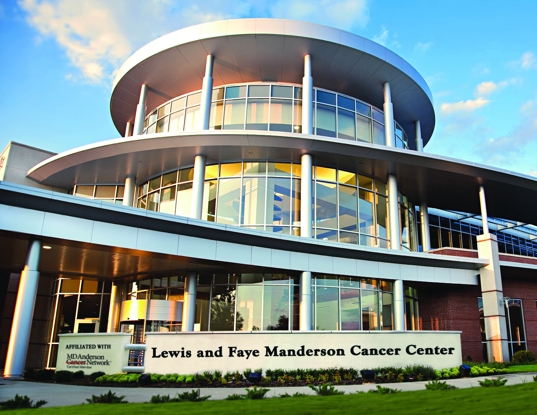Hematology (Blood Disorders)
Hematology is the diagnosis, treatment and prevention of malignant and non-malignant blood disorders. Our specialists treat and evaluate blood and lymph node cancers as well as noncancerous blood disorders such as high or low blood counts and clotting disorders. Our hematology services include:
- IV and oral therapy
- Treatment for most forms of leukemia and lymphoma
- IV iron infusion
- Diagnosis and treatment of clotting disorders
- Assistance with referrals to other hospitals/cancer centers when necessary
Types of blood cancers:
- Leukemia – This cancer begins in the bone marrow where blood is formed. Over time, the leukemia cells may crowd out or suppress the growth of normal cells. Treatment may include chemotherapy and possibly a stem cell transplant. Learn more at https://www.lls.org/leukemia
- Hodgkin Lymphoma – Hodgkin lymphoma affects the lymphatic system, part of the body’s immune system. The success rate for treatment is very high. Treatment may include chemotherapy, radiation and possibly a stem cell transplant. Learn more at https://www.lls.org/lymphoma/hodgkin-lymphoma
- Non-Hodgkin Lymphoma – Non-Hodgkin lymphoma is a diverse group of blood cancers that starts in lymphocytes (white blood cells which are part of the body’s immune system). Treatment will depend on which type of lymphocyte is affected, how mature the cells are and other individuals factors. Treatment may include chemotherapy, radiation and possibly a stem cell transplant. Learn more at https://www.lls.org/lymphoma/non-hodgkin-lymphoma
- Multiple Myeloma – Multiple myeloma is a form of cancer that occurs due to abnormal and uncontrolled growth of plasma cells in the bone marrow. Normal plasma cells help the body fight infection by producing antibodies. The plasma cells produced in multiple myeloma produce abnormal antibodies that the immune system is unable to use. These abnormal antibodies build up in the body and cause a variety of problems. There are various treatment methods, including chemotherapy, radiation therapy and stem cell transplants. Learn more at https://rarediseases.info.nih.gov/diseases/7108/multiple-myeloma

